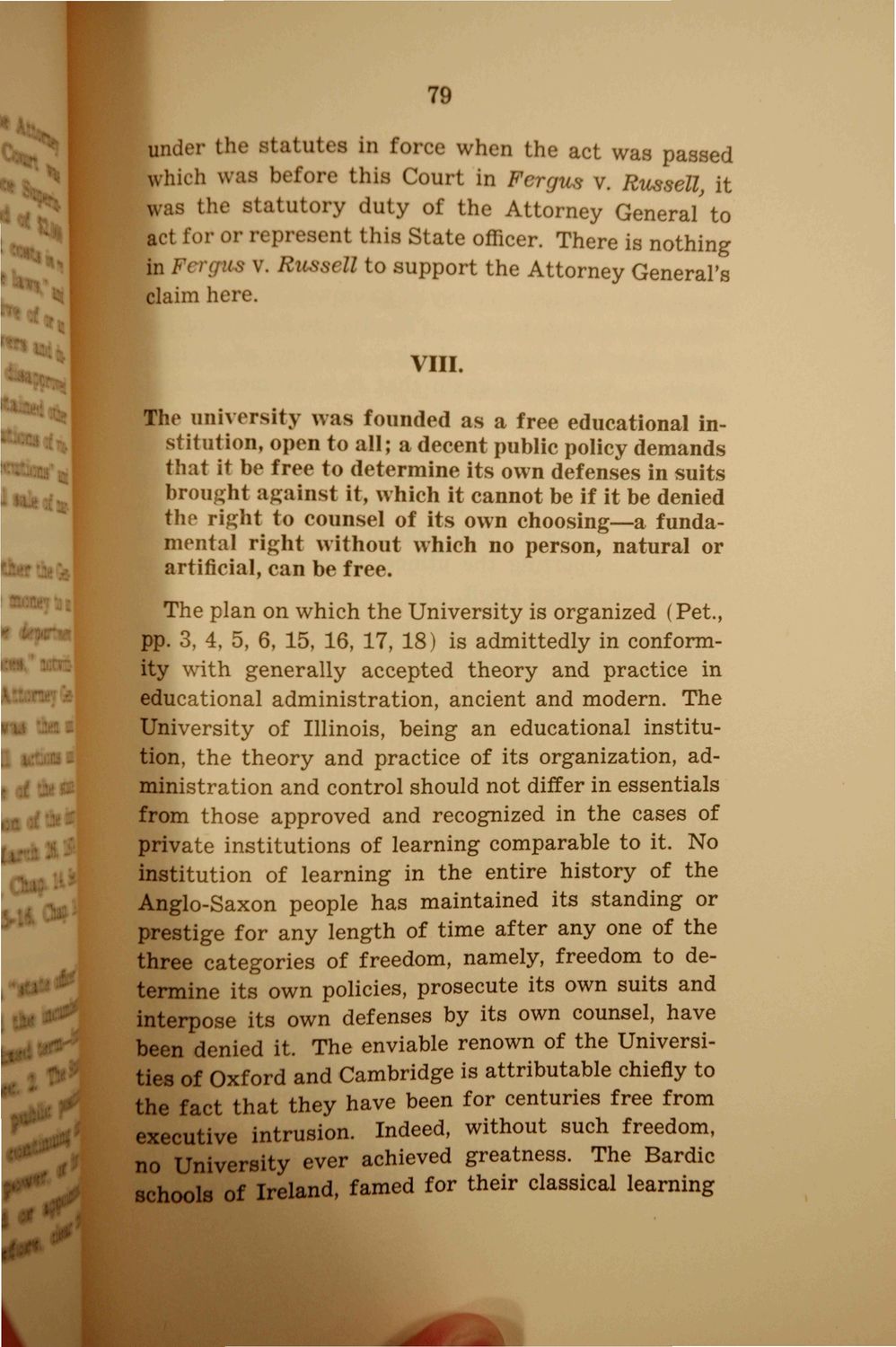| |
| |
Caption: Booklet - UI Charter of Freedom (1942)
This is a reduced-resolution page image for fast online browsing.

EXTRACTED TEXT FROM PAGE:
79 under the statut. s in force when the act was passed • rows v. Russell was the statutory duty of the Attorney Genera/to act for or represent this State officer. There is nothing Russell [aim here. VIII. The university was founded as a free educational institution, open to all; a decent public policy demands that it be free to determine its own defenses in suits brought against it, which it cannot be if it be denied the right to counsel of its own choosing—a fundamental right without which no person, natural or artificial, can be free. The plan on which the University is organized (Pet., pp. 3, 4. 5, 6. 15, 16, 17, 18) is admittedly in conformity with generally accepted theory and practice in educational administration, ancient and modern. The University of Illinois, being an educational institution, the theory and practice of its organization, administration and control should not differ in essentials from those approved and recognized in the cases of private institutions of learning comparable to it. No institution of learning in the entire history of the Anglo-Saxon people has maintained its standing or prestige for any length of time after any one of the three categories of freedom, namely, freedom to determine its own policies, prosecute its own suits and interpose its own defenses by its own counsel, have been denied it. The enviable renown of the Universities of Oxford and Cambridge is attributable chiefly to the fact that they have been for centuries free from executive intrusion. Indeed, without such freedom, no University ever achieved greatness. The Bardic • a T i„«ri fnrnofl for their classical learning- It MM 2 *01 4 g
| |